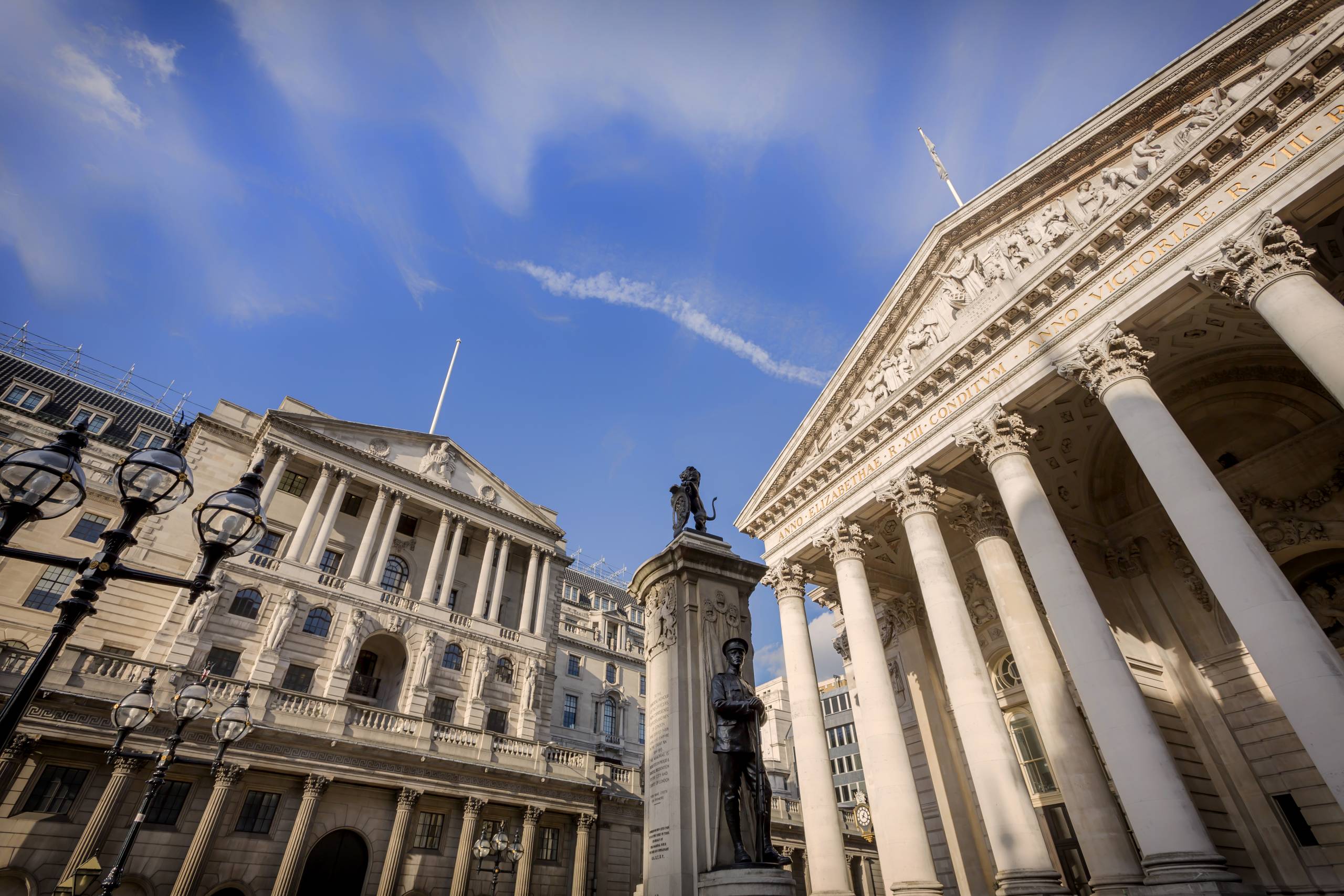UK avoids technical recession
The UK economy once again narrowly avoided a technical recession today as it posted growth of just 0.1% in the first quarter, making it the worst performing economy in the G7, lagging far behind its major international counterparts.
Monthly estimates show that the UK GDP fell by 0.3% in March according to the Office for National Statistics, worse than economists expected. The economic picture is bleak, considering January’s 0.5% (revised) growth along with a stagnation in February.
The contraction in March was driven by a 0.5% fall in services sector activity, while production output grew by 0.7% and construction by 0.2%. The fall in services was offset by a 1.5% growth in arts, entertainment, and recreation – corroborating a recent report from Barclays which showed Britons are now spending more on entertainment, leisure, and holidays.
Despite this, however, growth remains anaemic. The Bank of England delivered a rather positive assessment yesterday, though, anticipating the real economy will be 2.3% bigger by 2026, and reversing the forecast of an impending recession. This could help to spur on the UK economy during the second half of 2023 so long as monetary policy begins to take an effect on the stubbornly high inflation.
The BoE responds
In its bid to lower rampant inflation in the UK, the Bank delivered its 12th consecutive rate hike with a 25-bps raise, bringing borrowing costs up to 4.50% – a level last seen in October 2008. While investors globally anticipate central banks to taper down in the coming months, and there have been vocal suggestions that interest rates have peaked, the fact of the matter is, inflation has remained sticky, especially in the UK. The the bank, however, has not ruled out further rate hikes this year – and at least one further increase of 25 bps is widely expected by investors.
Over the last couple of months, annual headline inflation has remained at higher levels than predicted, at just over 10%, while core inflation also continues to be stubborn, risking entrenchment. The MPC’s reluctance to issue an outline on the tightening cycle is therefore understandable.
While the BoE is likely approaching the end of its tightening cycle, it shouldn’t rule out further action to tackle stubborn inflation. The UK’s banking system appears in good health, allowing room for policymakers to remain committed to the current monetary pathway.
The UK’s high inflationary reading has also been compounded by the tightness in the labour market. With unemployment at historic lows of 3.8% and the number of vacancies remaining high, confidence levels have sustained economic demand.
In the wider global context, UK inflation is double that of the US, significantly higher than the Eurozone, and at about five times the BoE target. Considering the initial inertia in reacting to the global macroeconomic conditions, the BoE has a lot of catching up to do before it can signal its further outlook. Striking the right balance will be a difficult task for the bank: on the one hand, inflation remains at the highest levels seen in a generation, while on the other, growth remains the worst in the G7, hampering the bank’s room for manoeuvre.
Focus on the Fed and ECB
The Fed, by way of contrast, increased rates by 25 bps, the tenth consecutive hike, to 5.25%, the highest since 2007. However, it indicated it could pause the cycle of hikes, while acknowledging that inflation remains high. The sharp rise in rates, signs of an inflation slowdown and the recent pressure on the US banking system are likely weighing on the assessments of Fed members. However, the Bank has left the door open to further hikes if necessary .
The ECB didn’t stand idly by either and decided to continue raising rates by 25 basis points, apparently in line with the Fed’s decision. The rate on the marginal lending facility rose at 4%, on deposits at 3.25% and main refinancing operations at 3.75%. This is the seventh consecutive increase that comes on the back of persistently high inflation in the Eurozone. In April, headline inflation rose to 7% for the first time in six months, even though the core component fell to 5.6% for the first time since June 2022.
The central bank is aware that banks in the Eurozone have significantly reduced access to credit, suggesting there will be an impact on the economy and consumers. Given the IMF estimates inflation will not reach the ECB’s target of 2% until 2025, the bank will have to strike a delicate balance between tackling stubborn inflation and the consequences for the economy.
There are two things that are certain, however: the first is that sterling should continue to strengthen, as shown already in the short term, given the data; and that uncertainty still reigns supreme not only in the UK but also in the US and Eurozone. Certainly there were signs of optimism, also confirmed by the improved growth prospects.
Where now?
Policymakers, households and businesses are still unable to breathe a sigh of relief as they continue to face the persistent inflationary pressures and restrictive monetary policy decisions. The picture will become clearer for the remainder of 2023 as new data is released and banks update the markets on their progress in tackling inflation and the effects of their monetary policy decisions.
Inflation remains the market’s most pressing concern for the year, but should we see a meaningful reduction in inflation in the UK and elsewhere, the positive impact on equities, Bank of England decision making and the broader market cannot be underestimated.
This wider picture of differing global performances and pressures again highlights the importance of maintaining a diversified portfolio to mitigate potential risks and realise the benefits of growth in a variety of regions and sectors. All Moneyfarm portfolios are designed with such diversity in mind and are built on a multi-asset basis so that your funds are put to work in the most effective way possible.
*As with all investing, financial instruments involve inherent risks, including loss of capital, market fluctuations and liquidity risk. Past performance is no guarantee of future results. It is important to consider your risk tolerance and investment objectives before proceeding.





